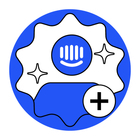I have a custom object called "Orders". When the user clicks "Cancel Order" in a bot I use a custom action to get their list of orders that can be canceled. Once the user finishes canceling the order, they can click "Cancel Another Order" which will then run the same custom action again to get their list of orders that can be canceled. However even though the custom action's response now has an empty array of orders, the order from the first response is shown in the conversation. How do we clear out the orders array on the conversation with each GET from the custom action?
Reply
Join the Intercom Community 🎉
Already have an account? Login
Login to the community
No account yet? Create an account
Intercom Customers and Employees
Log in with SSOor
Enter your E-mail address. We'll send you an e-mail with instructions to reset your password.






